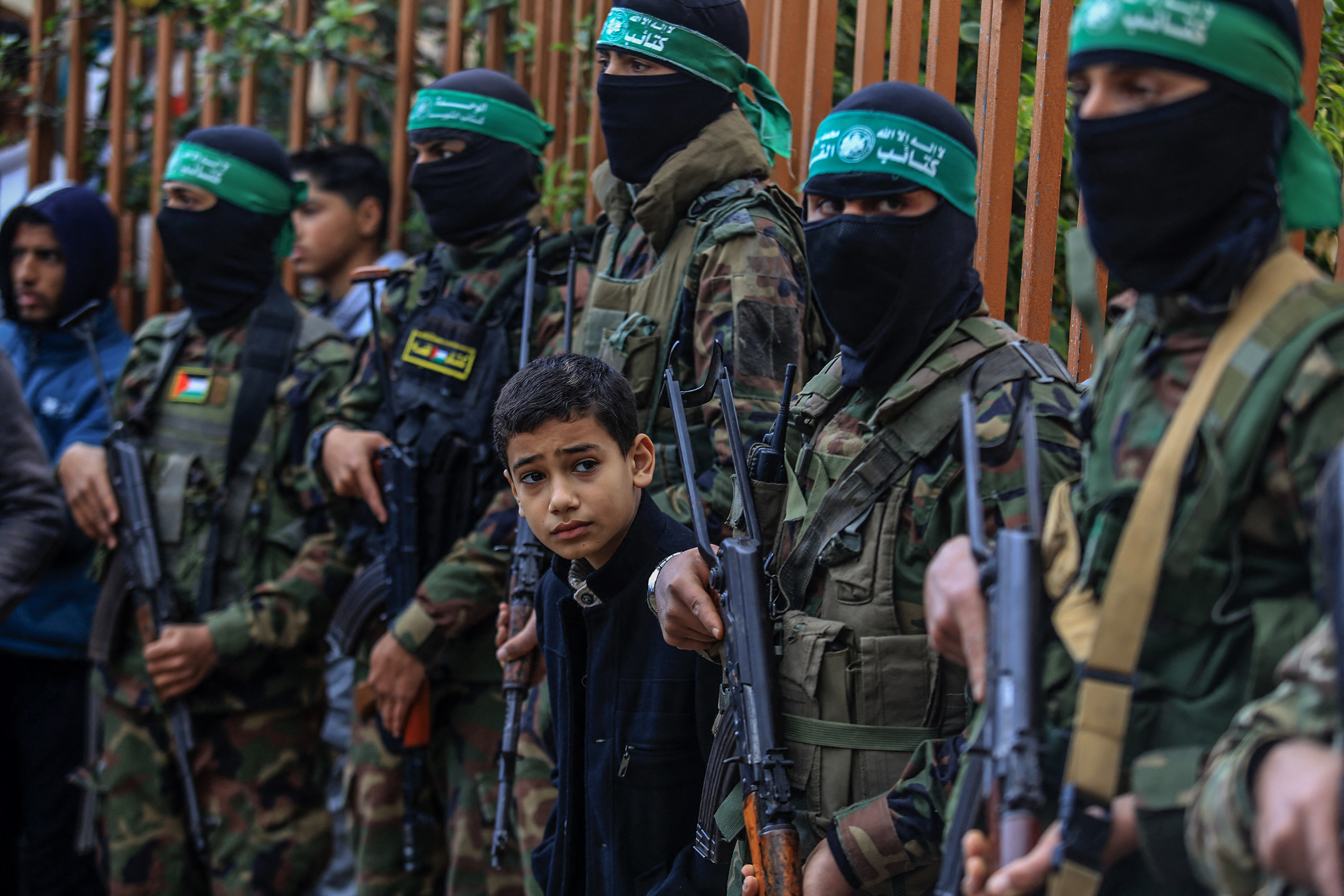Mediators have reached an agreement to release all Palestinian prisoners who were due to be freed last week in exchange for the bodies of four Israeli hostages, Egyptian state-linked media reported late Tuesday.

The International Committee of the Red Cross has urged all parties to carry out prisoner and hostage swaps “in a dignified and private manner”.
Highly controversial
Given the nature of the deep-rooted Israeli-Palestinian conflict, prisoner releases from Israeli jails are highly controversial.
For Palestinians, however, the releases are viewed as long-delayed justice with the prisoners often regarded as symbols of resistance against the Israeli occupation.
Both sides have accused each other of violating the ceasefire, but it has so far held.
Israel vowed to destroy Hamas after its October 7, 2023 attack, and has made bringing back all hostages seized that day one of its war objectives.
The attack that triggered the war resulted in the deaths of more than 1,200 people, and Israel’s retaliation killed more than 48,000 in Gaza, according to figures from both sides.
US President Donald Trump’s envoy Steve Witkoff said he was headed to the Middle East this week to “get an extension of phase one” of the truce.
“We’re hopeful that we have the proper time… to begin phase two, and finish it off and get more hostages released,” Witkoff told CNN.
Trump has floated the idea of a US takeover of war-ravaged Gaza under which its Palestinian inhabitants would move elsewhere, triggering widespread criticism.
Alongside the Gaza war — which displaced almost the enclave’s entire population of 2.4 million — Israel has intensified its military operations in the West Bank.
The Israeli army said Tuesday it carried out air strikes targeting military sites containing weapons in southern Syria, just days after Netanyahu called for demilitarising the area.
At least two people were killed by a strike on one of the sites, the headquarters of a military unit southwest of Damascus, a war monitor said.
US envoy says Israel heading to Gaza talks
Steve Witkoff, US President Donald Trump’s point person on the Middle East, repeated that he was also ready to head back to the region to boost diplomacy.
“We’re making a lot of progress. Israel is sending a team right now as we speak,” Witkoff told an event in Washington for the American Jewish Committee.
“It’s either going to be in Doha or in Cairo, where negotiations will begin again with the Egyptians and the Qataris,” he said.
Egypt, Qatar and the United States — in an unusual joint effort between Trump’s diplomatic team and the administration of former president Joe Biden — sealed an agreement in January after months of diplomacy to pause more than a year of bloodshed in Gaza.
Mediators said Tuesday they restored a swap that was part of the first phase of the deal, which is set to end on March 1.
Israel agreed to release 600 Palestinian prisoners, who had been due to be freed last week, in exchange for the bodies of four Israeli hostages.
Prime Minister Benjamin Netanyahu had earlier held off on the deal due to what he described as “humiliating ceremonies” to free the hostages by Hamas, which opened the war with an attack on Israel on October 7, 2023.
Witkoff said the focus of the new talks will be to “put phase two on track and have some additional hostage release — and we think that’s a real possibility.”
Witkoff said that “maybe” he will join the negotiations on Sunday “if it goes well.” He earlier spoke of traveling to the region this week.
Trump in his first term spearheaded the so-called Abraham Accords, in which the United Arab Emirates, Bahrain and Morocco normalized relations with Israel — the first Arab countries to do so in decades.
Witkoff voiced optimism at efforts to bring onboard Saudi Arabia, arguably the biggest prize due to its significance as guardian of Islam’s two holiest sites.
But he also said he saw potential for normalization by Lebanon and Syria, after recent setbacks by forces in the two countries with ties to Iran’s clerical government.
“Lebanon, by the way, could actually mobilize and come into the Abraham Peace Accords, as could potentially Syria. So, so many profound changes are happening,” Witkoff said.








